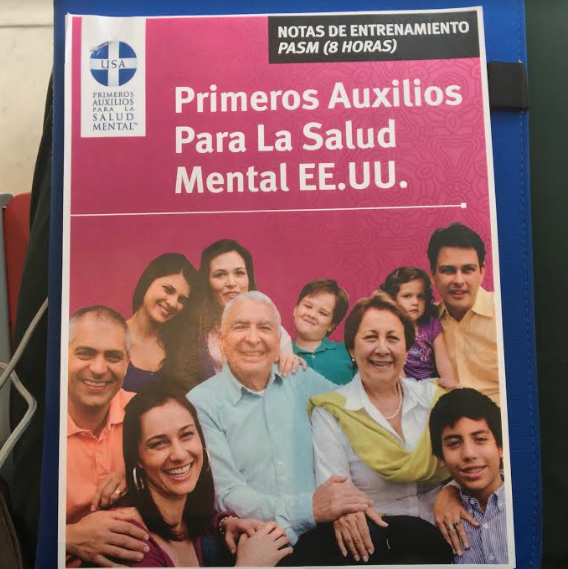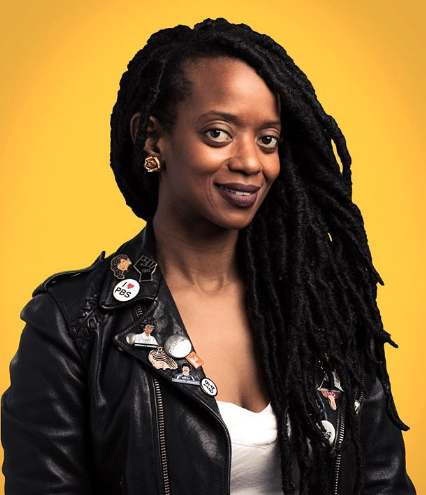Before I had my younger daughter, I had no idea about special education. I had never heard of an IEP (Individualized Education Plan). And if I am being completely honest, I associated “special-needs students” with cruel jokes about “the kids on the short bus.”
So when at 2 years old, my baby girl was basically non-verbal, I was perplexed. My loving Black family and friends all assured me that she was just going to be a late talker. But my mommy instinct knew better. God whispered to my soul, “Something else is happening.”
Yet, I tried to ignore that whisper. My husband and I grasped tightly to indicators that Maya was “fine” or “normal.” Here are some examples:
- Our wonderful pediatrician told us that kids develop language skills at different times. His baseline for not worrying was two words at 2 years old and three words at 3 years old. Based on the Centers for Disease Control milestones, he was right about age 2 but way off for age 3.
- Our daughter’s advanced non-verbal skills. She could do puzzles, had amazing organization tools, and had great hand/eye coordination.
- Her sociability with people. She gave lots of hugs and kisses and had great eye contact with people. (Possible signs of autism in children include avoidance of physical contact and eye contact with other people. That wasn’t our daughter.)
However, the whisper that something was wrong with our baby girl wouldn’t go away, no matter how many people, articles, or studies assured us she was developing normally.
A total gift from God came when my husband and I reached out to a close family member, Courtney Mathews, who was a speech therapist in the Chicago Public Schools. Courtney specialized in understanding speech delays and disorders in toddlers. After a tense two-hour observation at our house, we had an answer. Our daughter had an official diagnosis of a speech delay.
YOU ABSOLUTELY NEED A GUIDE/ADVOCATE.
It is hard to explain the intense emotional rollercoaster that happens when you realize there is something wrong with your child, after trying to deny it for so long. Luckily, we had a number of guides who helped us navigate the system, had the knowledge to provide our daughter the help she needed and knew when it was time to put up a fight.
Our advocate from Equip for Equality helped us obtain the early interventions our daughter needed. They have allowed her to almost completely catch up to “normal developmental skills.” We also knew a school administrator who helped us use the magic words to unlock services in schools.
We learned so many things from our advocates:
- How to navigate early intervention services. They are free in the State of Illinois for all families.
- How to create a plan that included assessment and full at-home diagnosis for our daughter.
- The specific new knowledge we needed to help our daughter: Learning the difference between a speech delay versus speech disorder. Getting answers to questions like: What is sensory processing disorder? What is occupational therapy?
- Our rights to services at home and at public schools as our daughter grew. Receiving home-based therapy before age 3 means a child is legally entitled to those same services at age 3 in public school.
- How to access legal support. Special-education language is tricky and you need to know the correct terms in order to get your child the services they need. Even with the law on our side, we still needed legal counsel to help us get our daughter the services she needed.
- How to navigate school and health care to get services. Our daughter had two speech therapists—one at school and another through a local hospital, three occupational therapists (school, hospital, private), plus a team of about 10 school staff working on her IEP. We have an HMO so it is extremely hard to coordinate all the services she needed, so we also had to pay out of pocket for occupational services with specialists. The cost is almost $200 a visit and she needed a lot of them. Now that she’s older, she goes less frequently, but it is still expensive.
Besides our advocate, my husband and I had other key supports in our corner, too. We had a belief in a God who guided, protected and loved us when the struggles of managing a special-need child became overwhelming. An incredibly supportive older sibling who also had to experience life changes as we had to prioritize her little sister’s needs. An incredible village of support from family and friends who help keep us sane as we deal with this confusing process.
Our daughter’s story has a happy-ish ending. She is currently in kindergarten and has made incredible progress. However, she still needs a lot of support—including speech therapy, occupational therapy, and an IEP at school—but the gains Maya has made over the last two years are remarkable.
FACT: EARLY INTERVENTION CAN CLOSE ACHIEVEMENT GAPS
The negative stigma we had about having a child with special needs was a barrier that could have permanently damaged Maya. If we would have continued to “pretend” Maya was fine, normal, and didn’t need any help, we could have seriously damaged her opportunity to catch up. Before we had an IEP, Maya had already been in trouble with the school and marked with a “behavior problem” at age 3!
As parents, in order to provide Maya the tools she needed to be successful in school, we had to know, advocate, and often fight for our child and her behavior, to be treated as symptoms of her “special needs” and, not as behavioral.
More importantly, the school had to respond to Maya’s symptoms with treatments that were developmentally appropriate. Suspending a child for behavior connected to their disability is illegal, but not everyone knows this and schools don’t always know how to make the connection. Too many Black kids, I believe, are suspended or unfairly disciplined, and deemed as “having bad behavior” because they have undiagnosed special needs.
This mindset to punish behavior that really stems from unaddressed special needs is not only found in schools. Black people, we too have been conditioned to believe that behavior problems in children are best dealt with by strict discipline. If “ Little Corey isn’t listening at school, then it is because the parents aren’t disciplining little Corey at home.” For too long, being a parent who strictly disciplined your child was equated with being a good parent.
HERE’S THE THING BLACK FOLKS: YOU CANNOT “DISCIPLINE” YOUR CHILD OUT OF THEIR SPECIAL NEEDS.Here’s the thing Black folks: you cannot “discipline” your child out of their special needs. Spankings, yelling, time-outs, are completely useless tools when dealing with special needs. In fact, strictly disciplining your children with special needs can cause more harm; children with special needs, need professional help and parents who advocate for developmentally appropriate responses to their behavior.
I didn’t have anyone in my Black social/family circles that I could talk to about special needs. So it was truly learning from square one. Until, I shared my stories with some of my White friends. I was absolutely floored by how many of them shared stories about how their children had received speech therapy at home, for free, at age 2. Or about how their children went to occupational therapy and it helped them regulate enough to function at schools. I honestly can’t count how many White parents had knowledge and had used these services. Yet, my husband and I, while educated, middle-class, and even resourceful, were Black, so we had no idea these services existed.
This is why I share our story. For Black parents, like us, who don’t know or have been misinformed. Having special-needs children is nothing to be embarrassed about. In fact, Black parents need to be more aware of signs of developmental delays and pro-active in early diagnoses, because Black toddlers are up to five times less likely to receive early interventions services when they need them.
The services our daughter received between ages 2 and 5 made a world of difference to her academically. I shudder to think about her ability to function in school without the intensive early intervention services she received before she started kindergarten.
So much of the academic achievement gap has to do with resource hoarding by (mostly) upper middle-class White people. Speech therapy at an early age is incredibly effective at getting children to grade level developmental markers. Children who do not receive services early are unnecessarily and severely damaged.
PREPARE YOURSELF FOR A FIGHT
I urge you, Black parents, to know the signs for developmental delays.
I urge you, Black parents, not to ignore internal parent sensors when you feel there is something wrong with your child.
I urge you, Black parents, to prepare yourself for a fight. Special education services in schools are a scarce commodity and, although legally required for all students who qualify, are only allotted to a small minority of students whose parents fought like hell to secure a spot for their children.
And, I urge all parents, especially White parents who have knowledge, resources, and access to early intervention tools. Please, please talk to Black parents, people of color, or other people who are outside of your social circle about resources that are available and helpful for children. The schools aren’t willingly sharing this information.
I know there is a feeling of “hoarding mentality” and fear that there aren’t enough tools and resources for everyone. But instead of keeping the services to ourselves, and our friends in our social circles, let’s fight to provide these resources to all parents.
ShaRonda Knott Dawson currently resides in the west suburbs of Chicago with her two girls, ages 8 and 4, and her husband, Brian. She received her masters degree from The University of Chicago, School of Social Service Administration, with an emphasis on management and public policy. ShaRhonda has over 15 years experience in nonprofit program management. She also has worked over 20 years as a political organizer, focusing on engaging youth, and people of color.
































